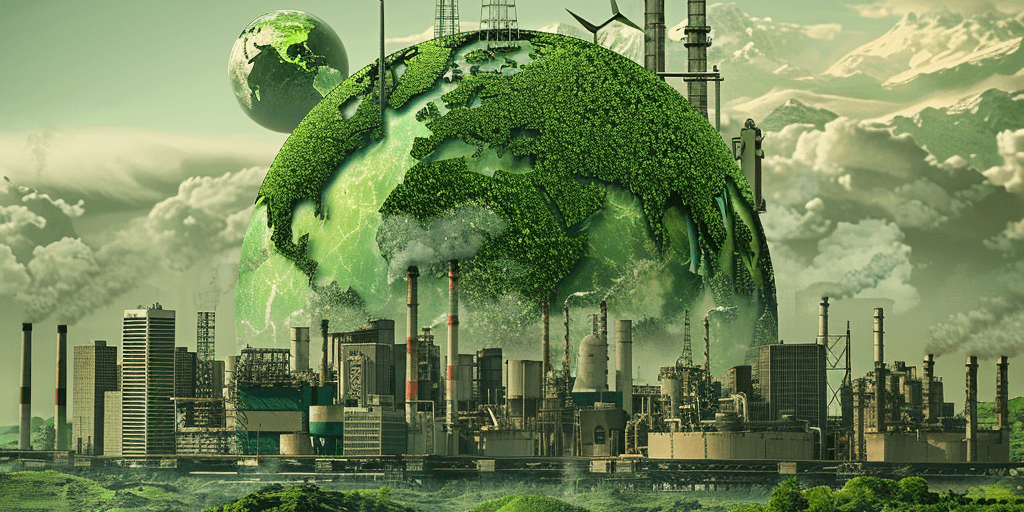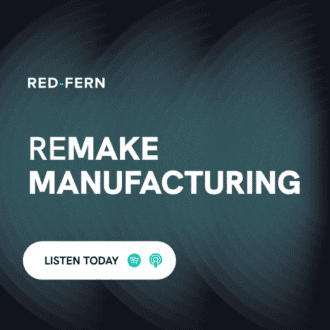Adapt your business for a sustainable future.
Sustainability is for the future – fact. Protecting our planet is fast becoming a priority for many businesses. Consumers look to sustainable brands, and brands reach for sustainable manufacturers. 78% of 22,000 consumers surveyed said “they want companies to play a more significant role in securing a sustainable future”
Now more than ever, businesses need to adapt to a sustainable approach to future proof their services, operations and products. Adopting a sustainable manufacturing approach also has lasting positive impacts on our planet – protecting our Earth, our environment, strengthening our humanity and all living things.
But why is sustainable manufacturing so important? And how can a manufacturer be more sustainable for long term results? In this post, we’re going to cover it all so you’re inspired to start making positive changes today for a better tomorrow.
We’ll cover:
- What is sustainability?
- The importance of sustainability manufacturing
- How a manufacturer can be more sustainable
What is sustainability?
Sustainability is the ability to exist, develop and create without compromising natural resources for the future. The United Nations define sustainable development in a way that assumes resources are finite – so they should be used carefully and resourcefully to ensure future generations have the present quality of life and can live happily and healthily for the future.
Sustainability encompasses three different pillars – these different pillars combine a holistic approach and all of these different dimensions should be considered to find lasting prosperity across the globe. Manufacturers should consider these three different pillars to understand the impact they have and how they can make positive changes.
The three different pillars of sustainability
Environmental sustainability
(Ecological integrity is maintained, all of earth’s environmental systems are kept in balance).
This involves the reduction of carbon footprints, water usage, non-compostable packaging and wasteful processes as part of a manufacturing supply chain. If positive changes are made in this pillar then it can be cost-effective for many businesses and play an important role in environmental sustainability.
Economic sustainability
(Human communities across the globe can maintain their independence and have access to the resources for the long term).
This pillar is about providing incentives for businesses and other organisations yet still adhere to all sustainability guidelines. A business must be profitable and produce enough revenue to be successful throughout time and be prepared for the future. Rather than making money in any way and at any cost, companies should adapt and generate profit by following a sustainable approach.
Social sustainability
(Universal human rights and basic necessities are attainable by all people).
There are many topics under this pillar. It’s the protection of the health of people from pollution, fair working conditions, maintaining basic access to resources without compromising the quality of life and fair pay. This pillar also covers education – educating people on sustainability and teaching them about the effects of sustainability, the impact they have individually and the dangers it can bring.
Sustainability comes down to preparing the future generation for success and maintaining healthy living. Without even knowing it, all of us, including you… Have a major role to play in developing current and environmental and social circumstances. We need to adapt, we need to embrace change and sustainability is the way for a successful future.
The importance of sustainable manufacturing
Sustainability is improving the future for all. It has many benefits both short-term and long-term and our Earth’s ecosystem cannot continue to function without more sustainable actions put in place. All living things depend on planet Earth’s resources to survive. If consumers, brands and businesses continue to pollute and over-use the resources available – they will be destroyed and depleted in a matter of years.

Science shows that the quality of our environment is declining on a global scale in turn affecting a number of environmental issues – deforestation, air pollution, global warming, water pollution and natural resource depletion. Sustainability is essential if we want our standard of living to be maximised for optimal health, wellbeing and success.
Sustainable manufacturing is cost-effective, it’s a USP for businesses, it increases revenue, it promotes a good brand image and more. Sustainable manufacturing contributes to a greater world. The more sustainable manufacturers are, the more fossil fuels there will be, more animal species will be safe. More than 42,100 species are at a risk of extinction with climate change being responsible for many of these situations. Sustainable manufacturing also contributes to the growth of resources that can be relied on, water quality and cleanliness and clean air and nontoxic atmospheric conditions.
There is a climate crisis and there is a current movement towards a more sustainable way of living, operating and working. Humans are the cause, without question. According to 350.org, rising temperatures correlate almost exactly with the release of greenhouse gases. Sustainability needs to be prioritised as the way we live our lives currently isn’t enough. We need to be pushing boundaries, we need to be making the extra effort and we need to understand how incredible planet Earth is.
So it’s time to think about how manufacturers can adopt a more sustainable approach for the future. It’s an investment, it will bring positive results to you and in return, it will provide positive benefits to this entire planet – how rewarding is that?!
How a manufacturer can be more sustainable?
Sustainable changes can be incorporated into your business, you may already use some of these without realising and some of them may require long-term investments and effort. If you own a business in the UK or a brand, it’s now time to consider the impact your choices have on the global environment.
If you’re not following the future prospects of a better environment for all you could lose customers, you may see a decline in your ROI and you may fall behind your competitors who are adopting a greener approach. Here are a few of our tips, there’s so many to choose from but implementing small sustainable changes over time will lead to the greatest outcomes.
Choose sustainable billing
All businesses have bills that need to be paid frequently. Going paperless can not only be more time-efficient but it can also streamline your processes. Sort through your bills and see where you can go paperless.
Maybe your bank offers the possibility to go paperless – this way you’ll be able to access all of your documents online and you’ll no longer need to store them. Statements, regular billing and all monetary documents can be sent to your email – an organised and secure way to keep this sorted. E-billing makes your life easier and is 10 times better for the environment too.
Reduce transportation or make travel adjustments
The busier the world becomes, the more traffic there is and the more vehicles there are on the road – transport is one the largest emitting sector of greenhouse gas. For short distances, try and avoid using vehicles. If you manufacture cars or vans – try and offer electrical options too. This will encourage your consumers to opt for an eco-friendly alternative and that way, you’re also doing your bit for the environment.
Try to avoid using vehicles as much as possible. This will help reduce carbon emissions and help save the environment in the long run. The challenges we face in the environment also breed innovation so don’t see this as a negative. See how you can incorporate eco-friendly travel into your businesses for increased business efficiency and positive environmental impact.
Recycle and reuse
Recycling is easy, it’s convenient and it’s something every business should be implementing. Consumers are more interested now than ever to see how brands deal with their waste sustainably and ethically. If you’re not utilising the power of recycling, now is your chance.
As an example, many businesses have teamed up with TerraCycle, an innovative recycling company helping OVER 202,831,611 people remove their waste effectively and safely. They help product companies, retailers, manufacturers, individual collectors and more. They help divert millions of pounds of waste from landfills and incinerators each month.
Corporate waste is rarely recycled properly, which leads to landfill waste and pollution to the environment. Utilising a company like TerraCycle not only ensures you’re removing your waste correctly but you’re also doing your bit for the environment.
A great way to encourage recycling across your company is to include a customer incentive. You could reward your customers for recycling their old products. Many companies do this already including Staples, Microsoft, Kiehl’s, Apple, Hunter and SO many more.

Go digital
There are 85 MILLION tons of paper waste generated annually around the world. So now it’s your chance to go digital and make a positive impact. Your banking, your customer communications, your meeting notes and anything that’s currently on paper could definitely go digital. Some companies who have gone paperless have saved over 10 hours per week of employee time – allowing time to be spent in the areas that matter most, generating sales and manufacturing.
Investing in the right software is crucial in helping you stay agile, responsive and innovative for market change. Although the benefits of going paperless might seem obvious – increase business efficiency, time-saved, improved communications, modern innovation and more. Going digital doesn’t have to be difficult, sometimes it can be done by one single process.
Ethical marketing
Do you want to tell your audience that you’re more committed to being eco-friendly and you’re reducing your impact on the environment? Don’t do it on a printed leaflet or postcards. Use digital marketing, utilise social media, share your insights with influencers, do some digital PR outreach and generate excitement online.
With the right experts on hand to help and assist, you’ll reach your audience correctly, you’ll generate more revenue and your impact on the environment will still be low. Not to forget, you’ll also build brand awareness and continue to strengthen your brand reputation.
Carefully source your providers
Where do you source your materials from? Who are your suppliers? Do you know where your products come from? To ensure your business is stepping forward in the right direction, reconsider your providers. Find out who they work with, find out the working conditions, see what their environmental policies are.
If you’re unsure, it’s best to seek out green providers that are sharing your commitment to doing better work for a greener tomorrow. Do your research, ask questions and see if changing suppliers could impact your eco-friendly business changes.
Ready to go digital? We can help!
If you’re ready to embrace digital sustainability and innovation and work with specialist technology and growth marketing specialists – you’re in luck. We help businesses achieve long-term goals, solve challenges and build their digital footprint.
Get in touch with us today and we’ll kickstart your digital journey today helping you create a positive environmental impact one step at a time.

